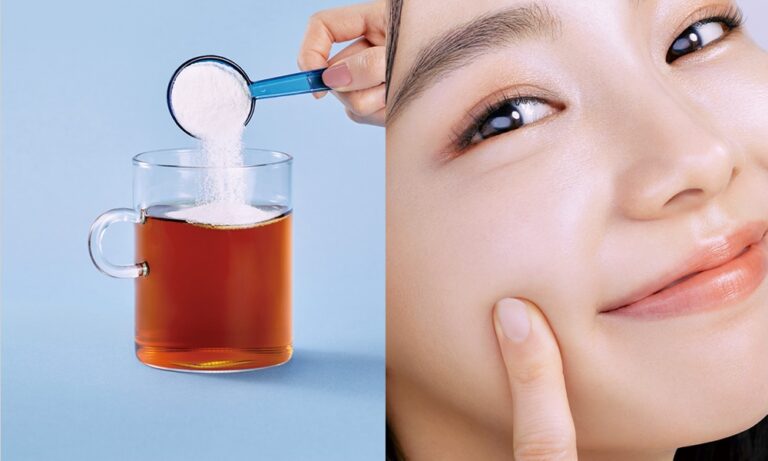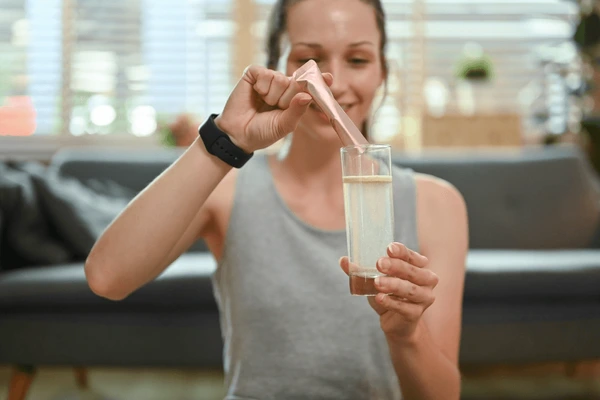In a market overflowing with skincare solutions, collagen has taken center stage—not as a topical cream, but as a drinkable supplement. From wellness bloggers to dermatologists, the buzz around drinkable collagen is louder than ever. But amid the marketing claims and influencer endorsements, one important question remains: what really happens when you drink collagen?
In this article, we’ll explore what science says about ingestible collagen, how it’s absorbed by the body, and what effects you can realistically expect from daily use. If you’re considering adding a product like collagene da bere to your routine, this is the deep dive you need.
What Is Collagen?
Collagen is the most abundant protein in the human body. It forms the structural scaffold of skin, bones, muscles, tendons, ligaments, and even the gut lining. In the skin, it accounts for over 70% of the dermal layer and is essential for firmness, elasticity, and hydration.
There are over 28 types of collagen, but Type I and Type III are the most relevant for skin health. As we age, collagen production naturally declines—starting in our mid-20s and accelerating in our 30s and 40s. Environmental stressors such as UV radiation, smoking, poor diet, and stress further degrade collagen, leading to wrinkles, sagging, dryness, and other visible signs of aging.
What Happens When You Drink Collagen?
Let’s walk through the journey your collagen supplement takes after ingestion:
1. Digestion and Breakdown
When you consume drinkable collagen—often in the form of hydrolyzed collagen peptides—it’s already been broken down into smaller amino acid chains for easier absorption. These peptides are digested in the stomach and small intestine, where they’re absorbed into the bloodstream.
2. Absorption into the Bloodstream
Studies show that hydrolyzed collagen peptides can enter the bloodstream within a few hours of consumption. Once absorbed, they circulate through the body and accumulate in the dermis—the deep layer of the skin where collagen and elastin reside.
3. Stimulation of Collagen Production
Here’s where the magic happens. The presence of collagen peptides in the bloodstream triggers the activity of fibroblasts, the skin cells responsible for collagen production. It’s not just about supplying raw materials—these peptides act as messengers, telling your body to ramp up collagen synthesis naturally.
What Results Can You Expect?
Numerous peer-reviewed studies have shown promising outcomes from daily collagen supplementation. Some of the most well-documented benefits include:
Increased skin elasticity
A study in Skin Pharmacology and Physiology (2014) found that women aged 35–55 who consumed 2.5g of collagen peptides daily for 8 weeks experienced a measurable improvement in skin elasticity.
Enhanced hydration and smoothness
The Journal of Cosmetic Dermatology (2015) reported that collagen supplementation improved skin hydration, reduced roughness, and enhanced overall skin appearance.
Reduction in wrinkles
A placebo-controlled study published in 2019 found a significant decrease in wrinkle depth and skin roughness after 12 weeks of collagen intake.
These aren’t overnight miracles—but with consistent use (usually 8–12 weeks), the results can be noticeable and long-lasting.
Is All Drinkable Collagen the Same?
Absolutely not. Several factors influence how effective a collagen supplement is:
✅ Hydrolyzed Format
Look for collagen that’s been hydrolyzed into peptides. This ensures better absorption and bioavailability.
✅ Type of Collagen
Type I and III are best for skin, while Type II is more focused on joints. Products like Collagene da Bere are formulated with Type I marine collagen, which is particularly effective for improving skin tone and texture.
✅ Additional Nutrients
Collagen doesn’t work in isolation. Nutrients like vitamin C, zinc, biotin, and hyaluronic acid help your body produce and maintain collagen. A good supplement will include these for synergistic effects.
✅ Sourcing
Marine collagen, sourced from fish skin and scales, is more bioavailable than bovine collagen, making it ideal for skincare purposes.
Common Myths About Drinkable Collagen
“It just gets digested like any protein.”
Partially true. Yes, collagen is digested—but studies using radio-labeled peptides have shown that these peptides do reach the bloodstream and the skin, where they signal collagen production.
“Topical collagen is better.”
Nope. Collagen molecules are too large to penetrate the skin’s surface. That’s why drinkable collagen is more effective, because it works from within.
“Results are instant.”
While some people notice improved hydration in the first few weeks, structural changes like wrinkle reduction typically take 2–3 months of consistent use.
How to Maximize the Effects
If you want to get the most out of your drinkable collagen, follow these tips:
- Take it daily, ideally on an empty stomach or with vitamin C for better absorption.
- Stay hydrated, as collagen benefits are enhanced by good water intake.
- Avoid smoking and excess sugar, which degrade collagen.
- Protect your skin from UV exposure, as UV rays accelerate collagen breakdown.
- Pair with a healthy diet rich in collagen-boosting nutrients like leafy greens, citrus fruits, and omega-3 fats.
The Bottom Line
Drinking collagen is not just a beauty trend—it’s a scientifically supported strategy to enhance your skin from within. With consistent use and the right formulation, drinkable collagen can improve skin elasticity, reduce fine lines, and restore a radiant complexion.
That said, it’s not a miracle solution. You won’t wake up looking 10 years younger after one dose. But give it time, and the cumulative effects can be transformative.
If you’re looking for a trusted, effective supplement, Collagene da Bere combines marine collagen peptides with key co-nutrients in a convenient, great-tasting liquid formula. It’s one of the smartest additions you can make to your daily skincare and wellness routine.


